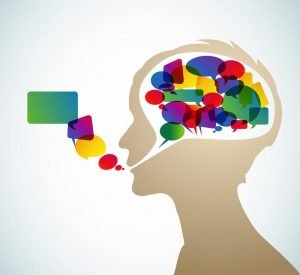Though stuttering may seem to be an issue that is entirely physical, new studies have found that the affliction has multiple components. While this may seem like a surprise, some of the most promising new research into stuttering has found that it is far more neurological in nature than previously thought. In fact, these studies have found that the causes behind stuttering are similar to the causes of Tourette’s syndrome, a disorder characterized by involuntary vocal or physical tics. This research has revealed that both are ostensibly caused by a patient’s inability to properly process one of the brain’s most important neurochemicals, dopamine.
This discovery has several implications. Perhaps the most important of all is that it has revolutionized the way in which treatment plans are conceived. Instead of treating the issue solely with speech therapy, these new findings suggest that stuttering should be treated with medications that address dopamine imbalances. By combining speech therapy with medications that improve how dopamine receptors in the brain process the neurochemical, researchers have found that they can treat stuttering and reduce its severity in patients. The results have been promising. To date, there has never been a dopamine-based medication treatment for stuttering that has failed to produce a positive result.
While this is exceptionally good news, it does not mean that a silver bullet has been found. This is largely because stuttering is not a standalone affliction. Those who are dealing with stuttering problems typically face a myriad of concurring speech disorders, language disorders, or non-speech-language disorders. Consequently, it is best to sit down with a physician who can document these issues and approach them with a well-rounded and holistic method of care before pursuing any single line of treatment.
Samoon Ahmad, MD has dedicated his life’s work to treating his patients holistically. His patients struggle with a wide variety of disorders, including stuttering. Dr. Ahmad has found that the best stuttering treatments integrate elements from a range of disciplines including psychopharmacology, psychiatry, nutritional science and a wellness approach of treating the whole person. Rather than focusing on symptoms, he focuses on identifying a disorder’s numerous root causes and applying every available method to treat the patient.


0 Comments on "Stuttering is Rarely a Stand Alone Affliction"